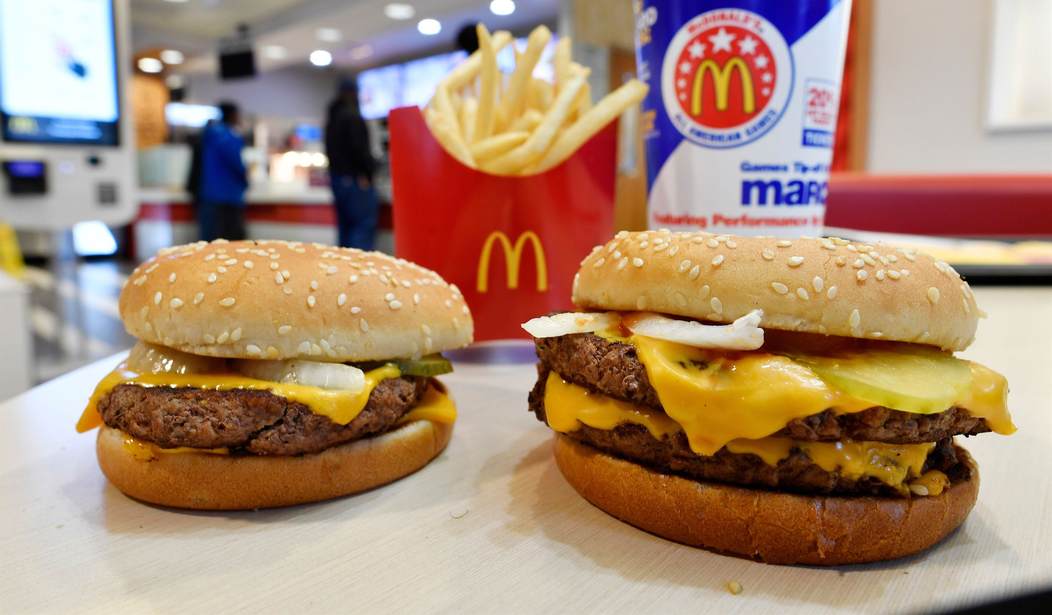Former independent presidential candidate Robert F. Kennedy Jr., who has thrown his support behind former President Donald Trump, reminded the nation that he’s still a Democrat in a post on X and video, in which he made an impassioned plea for government intervention to address the growing health crisis linked to food additives.
In the post, Kennedy points out that American children are being poisoned by substances such as yellow dye #5 (tartrazine) and other additives included in everyday snacks, fast foods, and even so-called healthy options. However, his demand for government bans on these substances misses the mark completely.
In the video, Kennedy compares the United States to other developed nations where these additives are restricted or banned. He links these additives to chronic diseases like obesity, diabetes, and autoimmune disorders. “It’s no coincidence that Americans die earlier than Canadians or Germans or Italians or Japanese or Koreans or Australians or most any other comparable country,” the former candidate said.
Kennedy further insisted that “[i]f we took all these chemicals out, our nation would get healthier immediately,” and that “We’d have fewer sick days. We’d have better focus. We’d have less anxiety.”
“President Trump and I are going to stop the mass poisoning of American children. Together, we’re going to make America healthy again,” Kennedy concluded.
The Democrats, who claim to be all about health care have stood by watching other countries ban these poisons that make our kids sick. Enough is enough. President Trump and I are going to stop the mass poisoning of American children. pic.twitter.com/Rf04MrF9e8
— Robert F. Kennedy Jr (@RobertKennedyJr) September 25, 2024
Kennedy’s concerns are not unfounded. There is evidence showing the adverse effects of some food additives. Tartrazine has been linked to several health problems, including allergies and hyperactivity in kids. It has also been linked to cancer. With U.S. life expectancy lower than other developed countries and an alarming rise in preventable diseases, the call to clean up America’s food supply likely resonates with many.
However, Kennedy’s solution—a sweeping increase in government regulation—raises serious concerns about expanding the size and scope of the government. Granting the government more power is rarely a good idea, as RedState’s Susie Moore pointed out on X:
I don’t agree that the government should be outright banning foods/chemicals that go into ultra-processed foods. However, I DO agree that it shouldn’t be promoting/subsidizing the crap that’s making us sick.
— Susie Moore ⚾️🌻🐶 (@SmoosieQ) September 25, 2024
Leveraging government to solve our problems is rarely the panacea advocates like Kennedy believe it to be. Historically, government regulatory bureaucracies such as the Food and Drug Administration (FDA) are prone to inefficiency, corruption, and cronyism. Kennedy even pointed this out when he referred to the cozy relationship between big food, big pharma, and the federal government.
Kennedy’s solution, however, would only expand the very system that is clearly failing to help Americans in the first place. If the state already cannot be trusted to effectively regulate people’s food, how would giving it even more power suddenly fix the problem? It reminds me of the definition of insanity: Doing the same thing over and over again, expecting a different result.
The reality is that consumer choice should drive the market, not government mandates. Every day folks can and should decide for themselves whether to buy products containing artificial dyes and additives. People should be empowered to make decisions regarding their health and diet instead of the state making the choice for us.
If anything, the government is the one to blame for making it harder for people to make better food choices. It subsidizes the most unhealthy ingredients that are used in highly processed foods: Corn and soy. This is just one of several ways the state affects our food supply.
There is also the impact on businesses and food costs. By forcing companies to comply with even more regulations, Kennedy would stifle innovation, drive up costs even further than they already are, and limit consumer choices. At a time when Americans are dealing with inflation, this is the last thing we need.
Increased government regulations disproportionately harm small businesses while benefitting large corporations. Larger food companies can afford to absorb the costs of complying with new regulatory standards. However, smaller competitors are not able to afford the expense involved in keeping up with even more bureaucracy. This could mean food companies that wish to provide healthier options at affordable rates would be prevented from doing so by a bloated government.
At the end of the day, Kennedy’s solution is simply to throw more government at the problem, a move that would only worsen the problem. Instead of running to daddy government, Americans must work together to find ways to improve our diets. Otherwise, we will only have more state power while still dealing with bad food.
In the meantime, if people want to eat Doritos instead of kale, let them. The state has no business meddling with our food choices.













